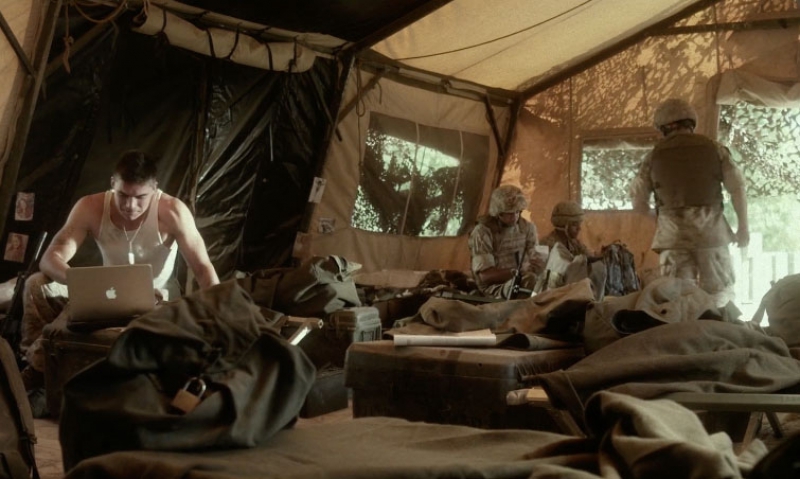
Issues faced by women veterans got front-and-center treatment Feb. 26 on the last day of The American Legion's Department Service Officers School.
Issues faced by women veterans got front-and-center treatment Feb. 26 on the last day of The American Legion's Department Service Officers School. The afternoon session began with role-playing scenarios acted out by three staff members of the Legion's Veterans Affairs & Rehabilitation Division. The first scenario highlighted the insensitivites that a male VA facility staffer can have toward a woman veteran seeking help after being raped. The second scenario demonstrated that women veterans often fare much better when they can be interviewed by a female VA staff member.
Verna Jones, who manages the Legion's Appeals and Special Claims Unit at the Board of Veterans Appeals, spoke to the audience of department service officers when the scenarios were finished. "When I was a field officer for The American Legion," she said, "one of the most difficult things for me to do was asking veterans if they suffered from erectile dysfunction. But I knew I had to ask that question because it could make a difference in the amount of disability benefits a veteran might receive. So men need to make themselves aware of unique needs and conditions of women veterans, too."
Jones urged the male DSOs to ask women veterans the right questions - even if it was difficult to do so - and to ask such questions with the proper degree of sensitivity.
The group then heard presentations from two VA representatives: Rosemary Jordan, analyst for the Compensation and Pension Program; and Betty Moseley-Brown, associate director of the Center for Women Veterans.
Jordan discussed disability compensation for military sexual trauma (MST), and how service officers can develop evidence for such claims. She also explained differences between the restricted (confidential) and unrestricted (open) reporting of sexual assault claims.
Stressing the seriousness of long-term effects from sexual trauma, Jordan said it could "lead to anxiety, behavior change, and changes in the quality of duty performance. It can also cause someone to break up with a partner and encourage substance abuse. In some cases, it may even contribute to a woman veteran becoming homeless."
Brown told the DSOs about a federal law passed in 2004 that allows women veterans, without filing a claim, to receive VA services and benefits for MST. While this eased the paperwork requirement, Brown also noted that VA's Center for Women Veterans had only five staff members to deal with the needs of 1.8 million women veterans. The center also advocates cultural transformation both inside and outside VA to promote better treatment for an ever-increasing woman veteran population.
"Women often do feel uncomfortable in VA facilities," Brown said. "VA has to construct its facilities to make them more woman-friendly." She also said that VA employees need to be better-educated about women as veterans and as servicemembers, noting that some VA workers still have difficulty understanding that women serve in combat roles.
Women are enrolling in VA health care at higher levels, according to Brown. She said VA paid for 1,500 births last year and "we're going to be seeing more of that because VA pays for births for women veterans with service-connected illnesses or conditions." She said VA needs to pay attention to the entire health care of women veterans, "not just breast and OB/GYN issues."
Brown also addresed the lack of respect frequently demonstrated by male VA workers toward women veterans. "Don't just yell out 'Betty' or some other first name when you call a woman vet up to the desk in a VA waiting room. And don't call us 'guys.' Some women get upset when they're called guys. Because when you use that word, it means the power is with the men, not the women."
Women veterans want jobs, and want to know that someone will help them fight for their jobs, Brown said. "We want good homes and the best health care" and procedures at VA medical centers that make sense to women. "Does the PAP smear table still have to face the door?" she asked the crowd incredulously. Many women veterans don't use VA facilities because they simply don't feel comfortable in them, Brown said.
"We need to be on the commissions and the task forces because we need to provide input for future VA construction and change some of these things around," she said. One of the best things DSOs can do to help women veterans, Brown suggested, is to go over to their local VA facility and get to know its woman veteran coordinator; each VA medical center is now required to have one.
The month of March is Women's History Month, and Brown told the audience that VA will do its part to tell "her story," highlighting the stories of women veterans on its Web site.
- Veterans Benefits


